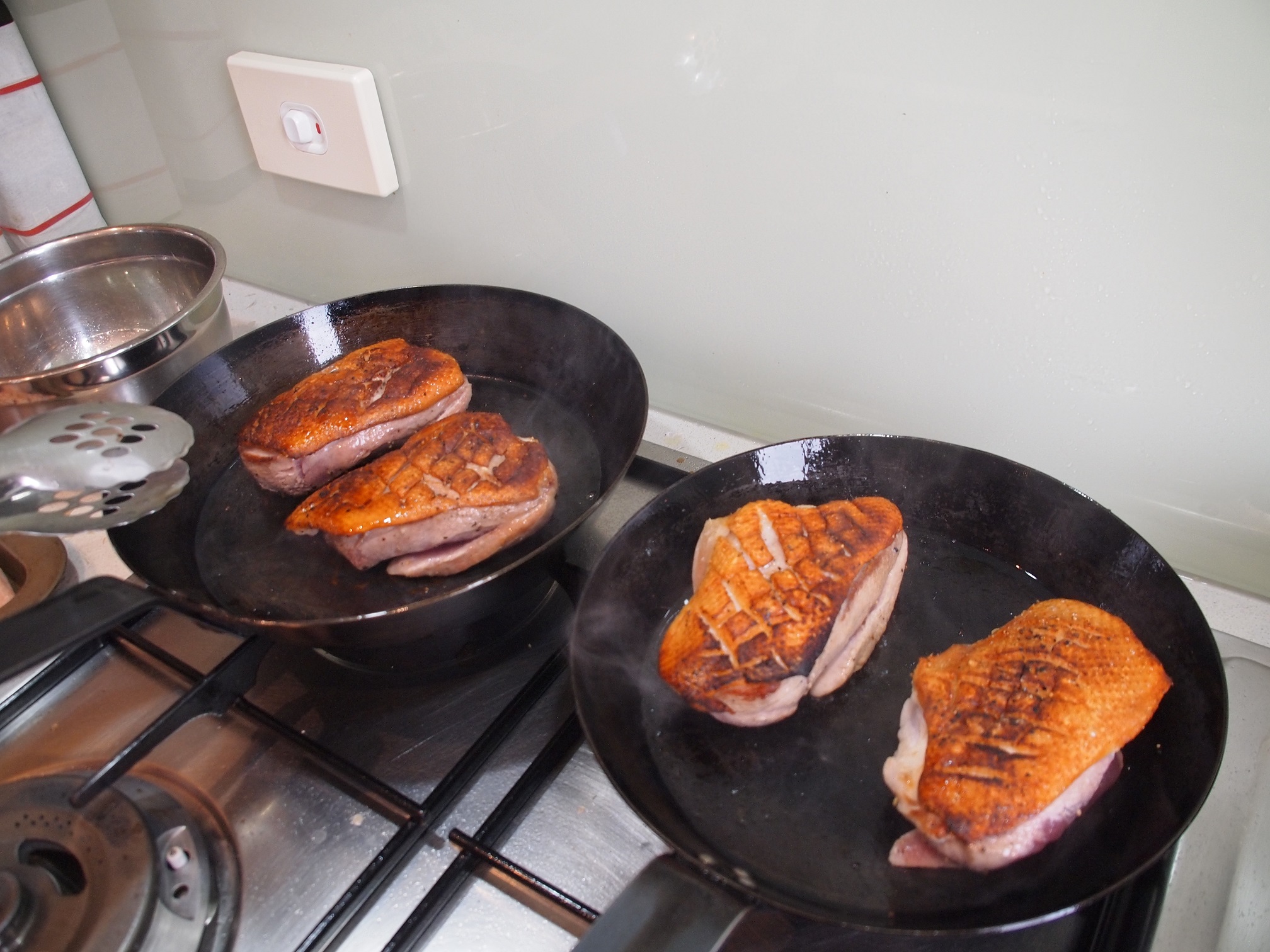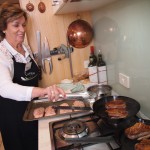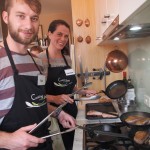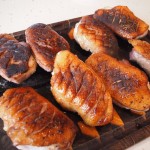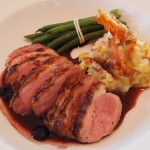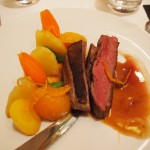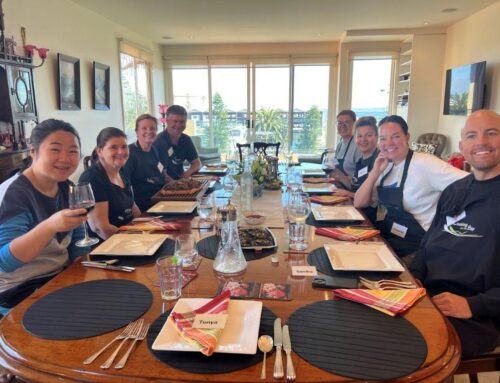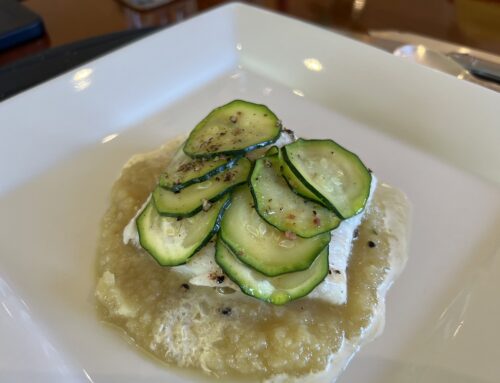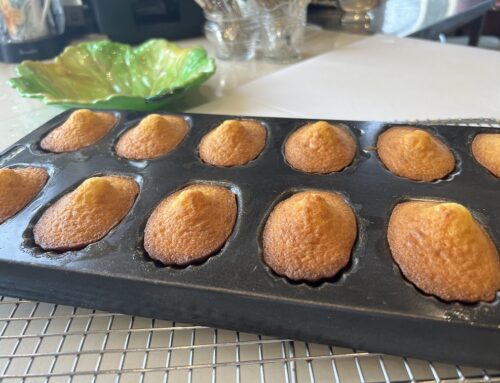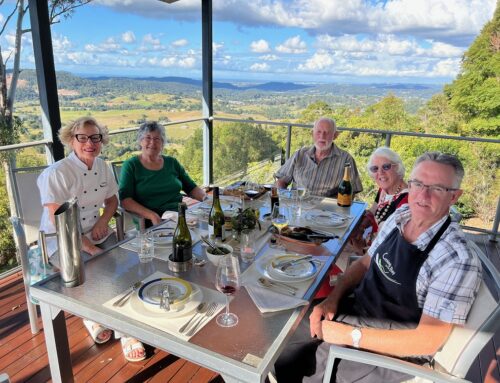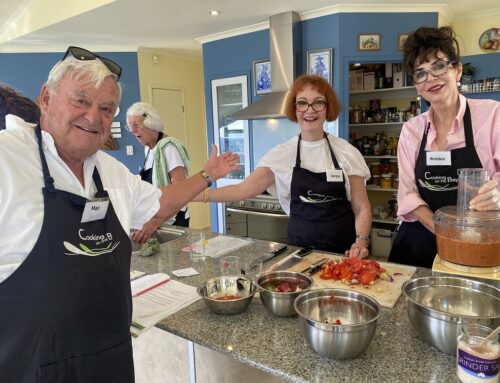Duck fat – the good news! Duck fat is a ‘good’ fat, rich in monounsaturated fats with a lower cholesterol than butter. We often cook duck breasts in our French Odyssey cooking classes and duck leg tagines in the Mediterranean – Touch of Spice classes and frequently people are amazed to hear that duck fat is a ‘good’ fat with a lower cholesterol than butter .
When we cook duck, the fat is always rendered out and saved for other purposes. There are a couple of ways to render out duck fat.
Rendering the fat with water
Remove the fat from the duck.
Chop the fat into very small pieces
Add the fat to a frying pan and spread out to cover
Cover the fat with water
Cook on a medium flame allowing the fat to render into the water
Continue to cook until the water has evaporated and only a slight simmer is visible
Filter off the duck fat reserving the remain fat for cracklings
Store overnight in the refrigerator
The collected unfiltered fat is clear… there is no presence of water.
Rendering the fat without water
Remove the fat from the duck.
Chop the fat into very small pieces
Add the fat to a frying pan and spread out to cover
Cook on a low flame allowing the fat to melt
As fat renders spoon off into a bowl
Continue cooking till most of the fat has been rendered
Filter off the duck fat reserving the remain fat for cracklings
Store overnight in the refrigerator
The collected fat is slightly cloudy, possibly a result of retaining water
Both methods provide for cracklings. Cracklings can be stored in the freezer. It is best to still have fat left in them. Then, simply take them from the freezer right into the pan for the final crisp.
After refrigeration the duck fat that is rendered without water has a softer consistency as a result of the presence of water.
Both fats are white when refrigerated or frozen. Duck fat keeps well in the refrigerator, and longer in the freezer, which is where I prefer to store it.
- Duck breasts resting
- Duck breast with blueberry sauce and tartiflette potatoes
- Duck breast with orange jus and seasonal vegetables
Uses of duck fat
In cooking classes I am often asked about the uses of duck fat –
• Add duck fat to the pan when you are cooking potatoes, they make them quite scrumptious, by adding flavour and crispness you do not get with oil. I usually boil the potatoes first and then finish them in the pan or the oven with the duck fat, sea salt and rosemary.
• duck confit, slow cooking of the duck legs, immersed in the duck fat with some salt, thyme and some quatre épices*. This confit method of cooking the duck legs, keeps the meat juicy and tender while it cooks until the meat falls off the bone
• duck fat is a wonderful addition to rillettes, see our recipes.
*Quatre épices is a spice mix used mainly in France but also found in Middle Eastern kitchens. The name literally means “four spices”; the spice mix contains ground pepper, (white, black, or both, cloves, nutmeg and ginger. Some variations of the mix use allspice instead of pepper or cinnamon in place of ginger.
The blend of spices will typically use a larger proportion of pepper, usually white pepper, than the other spices, but some recipes suggest using roughly equal parts of each spice.
In French cooking, it is typically used in soup, ragout and pot-cooked dishes, vegetable preparations and charcuterie, such as pâté, sausage and terrine.

